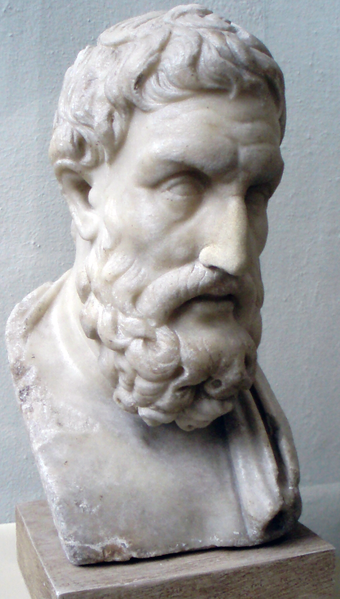Atheism thrived in ancient world: Humans not 'wired' for religion

Atheism is not a modern phenomenon and thrived in societies including ancient Greece and pre-Christian Rome, a University of Cambridge Professor has said. In his latest book, Battling The Gods, Tim Whitmarsh looks at how ancient people did not necessarily believe in God or gods, with early societies considering atheist beliefs to be normal.
Whitmarsh, Professor of Greek Culture and a Fellow of St John's College, says atheism is normally seen as a modern development, with earlier civilisations being hardwired into believing in religions – the idea we are naturally pre-disposed to believe in gods.
"We tend to see atheism as an idea that has only recently emerged in secular Western societies," he said. "The rhetoric used to describe it is hyper-modern. In fact, early societies were far more capable than many since of containing atheism within the spectrum of what they considered normal."
In the book, Whitmarsh argues that examples of atheism, or disbelief, can be found in the writings of Xenophanes of Colophon (570-475 BC), while Plato (400 BC) wrote that non-believers were "not the first to have had this view about the gods". Whitmarsh says that the reason we think atheism only emerged relatively recently is because it does not generally appear in early texts.
The professor looks at around 1,000 years of history testing different forms of disbelief put forward by philosophers, writers and public figures. This is particularly prominent through ancient Greek societies, where different states had its own traditions and customs. Stories of gods show now specific moral vision. "The idea of a priest telling you what to do was alien to the Greek world," Whitmarsh said. He argues that atheism was not necessarily seen as morally wrong, rather it was tolerated as a viewpoint when discussing the notion of gods.

He points to the writer Euripides, who wrote plays criticising the divine, and the Epicureans (based on the teachings of the ancient Greek philosopher Epicurus) – a group of atheists who rejected the idea gods had control over human life.
Ancient atheism ended, however, when societies that believed in multiple gods were replaced by ones that favoured a single, all powerful god. The adoption of Christianity in Rome as a "seismic" shift, he said, with religion being used to unite the Empire. Eventually, this would leave little room for atheism.
"Believers talk about atheism as if it's a pathology of a particularly odd phase of modern Western culture that will pass, but if you ask someone to think hard, clearly people also thought this way in antiquity," Whitmarsh said.
"Rather than making judgements based on scientific reason, these early atheists were making what seem to be universal objections about the paradoxical nature of religion – the fact that it asks you to accept things that aren't intuitively there in your world. The fact that this was happening thousands of years ago suggests that forms of disbelief can exist in all cultures, and probably always have."
© Copyright IBTimes 2025. All rights reserved.






















